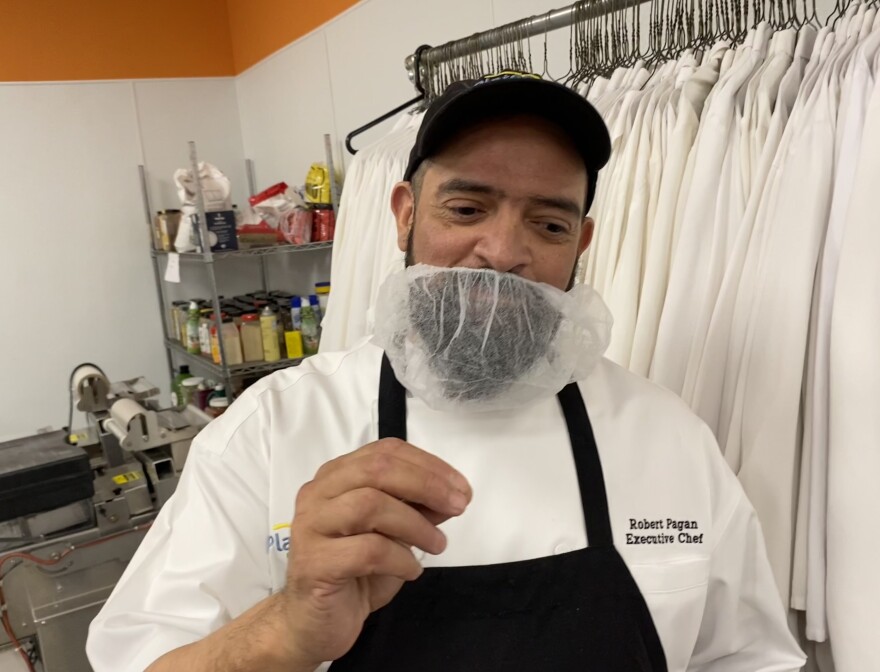Second Harvest Food Bank of Central Florida has begun providing medically tailored meals to food-insecure people with severe kidney disease.
The pilot program is starting small with hopes of serving many more patients with a variety of chronic conditions.
At Second Harvest's Mercy Kitchen in Orlando, executive chef Robert Pagan is about to assemble his healthy and delicious beet and farro salad.
"This salad has pearled farro," he said. "It's got roasted peeled beets that are diced. It's got carrot coins that are blanched, honey, a little dijon, red wine vinegar, olive oil, fresh chives and fresh tarragon."
This dish, like others fine-tuned and taste-tested for a new pilot program delivering medically tailored meals, has no salt added.
"I'm sure whoever receives our meals, if they want to add a little pinch when nobody's looking, it won't be my fault," Pagan said and laughed. "But we're not going to do it. "
Pagan said there's really no replacing the salt. His kitchen compensates with aromatics -- like celery, carrots and fresh herbs -- plus acidic ingredients.
"That might be lemon juice, lime juice, different kinds of vinegars like balsamic vinegar or red wine vinegar, white vinegar, any kind of vinegar you can think of. These meals have a little touch of that in there just to kind of give it a little bite."
Medically tailored meals are designed by a registered nutritionist for patients who are extremely ill.
The Food Is Medicine Coalition, a national association, provides guidelines. It says the goal is to improve health outcomes, increase patient satisfaction and lower the cost of care.
Tufts University researchers found that delivering more of those meals in the U.S. would reduce hospitalizations and net a savings of nearly $13.6 billion a year.
Dawn Koffarnus, the chief health systems and financial officer at Second Harvest, says the pilot program is funded by the DaVita Giving Foundation and provides a free daily breakfast, lunch and snack to food-insecure patients with end-stage renal disease. The meals are frozen and delivered once a week.
Koffarnus says they’re starting with only 20 patients in Orange County referred by DaVita clinics. But she hopes to see it expand throughout Second Harvest’s seven-county region and serve patients with a variety of chronic conditions.
"We envision getting there through partnerships," she added. "And some of those areas are HIV AIDS patients, hypertension or heart disease patients, diabetic patients, cancer patients."
At Meals on Wheels America, senior director for nutrition strategy Uche Akobundu says medically tailored meals have a positive impact on health and well-being -- and on concrete health measures, too.
"Measures that have to do with blood sugar, measures that have to do with other clinical indicators also show improvement if folks receive medically supportive, tailored nutrition," Akobundu said.
Meals on Wheels is urging Congress and the White House to make medically tailored meals widely available through senior nutrition programs and to make them reimbursable through Medicaid and Medicare, including Medicare Advantage.
Akobundu says those meals need to look and taste delicious. Food that is specially designed to meet your medical needs does no good just sitting uneaten on the plate.
"There's no reason we can't have nutritional achievement as well as great satisfaction with the meals that are provided," she added.
Pagan says many people are accustomed to a lot of sugar and salt in their food.
"Some people have told me and I'd rather die happy than to eat healthy," he said. "So you know, it's one of those things. It's a learning process for the patient."
They might want to start by trying that beet and farro salad.
Copyright 2023 WMFE. To see more, visit WMFE.



